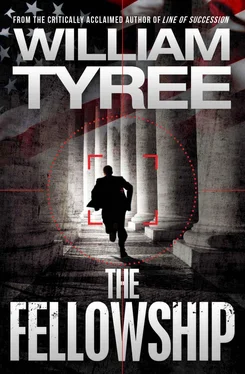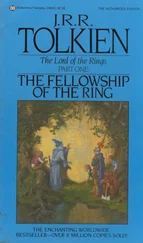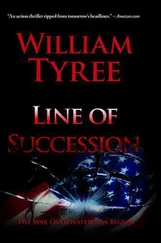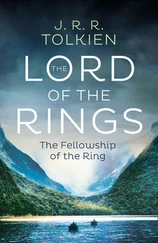William Tyree - The Fellowship
Здесь есть возможность читать онлайн «William Tyree - The Fellowship» весь текст электронной книги совершенно бесплатно (целиком полную версию без сокращений). В некоторых случаях можно слушать аудио, скачать через торрент в формате fb2 и присутствует краткое содержание. Год выпуска: 2013, Издательство: Massive, Жанр: Триллер, на английском языке. Описание произведения, (предисловие) а так же отзывы посетителей доступны на портале библиотеки ЛибКат.
- Название:The Fellowship
- Автор:
- Издательство:Massive
- Жанр:
- Год:2013
- ISBN:нет данных
- Рейтинг книги:5 / 5. Голосов: 1
-
Избранное:Добавить в избранное
- Отзывы:
-
Ваша оценка:
- 100
- 1
- 2
- 3
- 4
- 5
The Fellowship: краткое содержание, описание и аннотация
Предлагаем к чтению аннотацию, описание, краткое содержание или предисловие (зависит от того, что написал сам автор книги «The Fellowship»). Если вы не нашли необходимую информацию о книге — напишите в комментариях, мы постараемся отыскать её.
The Fellowship — читать онлайн бесплатно полную книгу (весь текст) целиком
Ниже представлен текст книги, разбитый по страницам. Система сохранения места последней прочитанной страницы, позволяет с удобством читать онлайн бесплатно книгу «The Fellowship», без необходимости каждый раз заново искать на чём Вы остановились. Поставьте закладку, и сможете в любой момент перейти на страницу, на которой закончили чтение.
Интервал:
Закладка:
Now the radio alternated between cheerful chanson and anti-Semitic propaganda. The girl sat in a wooden chair while mending the bullet hole in Wolf’s tunic. Suddenly the radio station broke for a message from Heinrich Himmler. At this, Wolf sat straight up in bed. Until now, he had not been certain whether Himmler was dead or alive.
The reichsfuhrer began his radio address by describing glorious victories in North Africa. He did not mention Paris, nor did he mention Stalingrad. He ended the holiday message by encouraging all troops to celebrate the Winter Solstice.
At this, the nurse’s face twisted in puzzlement. She had said little to Wolf until now. “Solstice?” she questioned. “Don’t you Nazis celebrate Christmas?”
A simple question. The answer, colored by what he had seen in the past several weeks, was more complicated than Wolf cared to admit. He could no more share what he had learned with the farm girl than he could with his own mother.
“Well?”
The door at the far end of the room opened. To Wolf’s astonishment, the soldier standing in the doorway was none other than his childhood friend.
Lang looked considerably thinner, as if he had been wandering the streets of Paris for days without food. He sprang more than walked to Wolf’s bed. The farm girl stood and backed away.
“Where have you been?” Wolf demanded.
“Never mind that,” Lang said. “Can you travel?”
“He’s still running a fever,” the farm girl protested.
Lang didn’t look at her. “We are to report at Wewelsburg Castle in eight days. Eight days! If we leave now, we can go home for Christmas.”
Gare du Nord
By chance, the train that Wolf and Lang boarded was the same that they had taken to Paris days earlier. The elderly conductor recognized them right away.
“Boys!” he exclaimed, noting Lang’s frail disposition and Wolf’s arm sling. “Let me show you to a private car. The least I can do. The very least!”
This time, Wolf helped himself to some schnapps in the bar. Lang tried to stop him. “What if the Gestapo sees you drinking?”
“I would call it medicine,” Wolf told him, although he was the first to agree that puritanism seemed to be in vogue. The previous year, the Nazi Party was said to have authorized the sterilization of more than five thousand known alcoholics. Anti-smoking and — drinking campaigns featuring healthy Aryan babies were plastered all over public transportation.
They had spoken little until now, having been under armed chaperone en route to the train. “Not a word to my mother about this,” Wolf said, gesturing with his arm sling.
“Sebastian,” Lang began, speaking just loud enough to be heard over the grind of the train. It was the first time in ages that anyone had called Wolf by his first name. “When we were in the staircase at Notre Dame, Himmler had said something about an ossuary.”
Wolf nodded. “I remember.”
“He said the ossuary was important. Do you know what he meant?”
Wolf was not certain of what he was allowed to share with his friend. Himmler had ordered Lang to stand in the hallway outside the priest’s quarters. Surely that had been a random security assignment, had it not? He and Lang were identical in rank, experience and education.
Even so, was he free to share what he had heard? Perhaps it was better not to take any chances, he decided. Besides, he knew next to nothing. Himmler had mentioned the ossuary only once, in the treasure room. He had called it a Holy Ossuary, although he had not specified the name of the saint whose bones supposedly resided in Notre Dame.
“I don’t know,” Wolf said at last.
“Those men in the robes,” Lang pressed. “Did they look like French resistance to you?”
Wolf shook his head. The simple robes. The crosses. They had seemed more like monks than the freedom fighters he had imagined.
“I went back to Notre Dame that night,” Lang continued. “After dropping you at to the hospital.”
Wolf set his glass on the bar. “Are you crazy? What if they had returned?”
“By the time I went back, the police had arrived. They were loading the bodies into a truck. I identified Hoffman so they could take his body back to his family. Did you happen to notice what was in his mouth?”
“There was nothing in his mouth except blood,” Wolf said. “He was trying to explain what he saw. I told him to write it instead.”
“Then they put it there after we left.”
“Put what there?”
“This.” Lang reached into a tunic pocket. He held a piece of black-and-red striped fabric that had been cut into an octagon shape. “It was sticking out from between his lips.”
On one side, a phrase was stitched in golden thread: Ad majorem dei gloriam. The other side read, Paratus enim dolor et cruciatus, in Dei nomine .
Wolf Residence
Munich
Aside from any changes he had made during occasional visits home, Wolf’s mother maintained his bedroom as it was when her son had left it before leaving for the Reich School in 1938. An oval-framed faculty photograph of his late father hung on the far wall. Atop the dresser, a chessboard with ivory pieces. A small statue of the Virgin Mary. A bowl containing a rosary.
On the far wall, a remarkable sketch signed by a young Dutch artist name Escher that his father had purchased for his 11th birthday. And hanging over the bed, an oversized silver crucifix. Even here in Munich, the very heart of National Socialism, he could not escape Christ’s accusing glare.
He heard the strains of Richard Strauss through the wall. For as long as Wolf could remember, playing Strauss had been his mother’s version of civil disobedience. Strauss, whom Goebbels had once appointed president of the Reichsmusikkammer , had been officially censored for a number of political infractions. Only the composer’s popularity had kept him out of prison. Real Nazis, it was said, listened to Wagner, who had gone public with his anti-Semitism long before Hitler had even been born.
As he had done twice each day since arriving home, Wolf slipped out of bed, turned and knelt, resting his elbows — both of them — on the bed. As far as he was concerned, the pain shooting down his left shoulder during these prayer sessions was entirely deserved.
He had killed a man, and in a church, no less. He had contributed to the desecration of one of the most holy cathedrals in Europe. He had listened to Himmler speak blasphemously about the Holy Mother and yet had done nothing to stop him. He was both a coward and a murderer.
Making matters worse, he had lied to his mother, telling her that his gunshot had been a training accident. She already had one son in combat. There was no sense in having her worry about both of them.
His head ballooned with heretical notions. Curiosities seeded by Himmler, the very man his parents had warned him about. The infallibility of the pope. The authenticity of a Bible that had been edited and translated through the ages. The ethnicity of the Holy Mother.
Round and round his thoughts went like some sinister carousel. He prayed that these ideas would be vanquished from his mind. He prayed for his mother, who had still not heard any news about his brother, Hans, from the eastern front. He prayed for Lang, who had seemed like a stranger to him since the firefight in Notre Dame.
Wolf stopped short of praying for a German victory. How could he? In just four short days, he was to return to Wewelsburg Castle, where Himmler was stockpiling the world’s great Christian artifacts. As he had learned in Paris, Himmler was no closeted Catholic, as Wolf had hoped when he had browsed the treasures in the castle museum. He was intent on co-opting Christianity for political and military gain. If Germany won the war, the Holy Roman Empire would be restored, and Christians worldwide would look not to Rome or Jerusalem, but to Wewelsburg Castle. Their Jesus would be recast with Aryan features and a Germanic bloodline.
Читать дальшеИнтервал:
Закладка:
Похожие книги на «The Fellowship»
Представляем Вашему вниманию похожие книги на «The Fellowship» списком для выбора. Мы отобрали схожую по названию и смыслу литературу в надежде предоставить читателям больше вариантов отыскать новые, интересные, ещё непрочитанные произведения.
Обсуждение, отзывы о книге «The Fellowship» и просто собственные мнения читателей. Оставьте ваши комментарии, напишите, что Вы думаете о произведении, его смысле или главных героях. Укажите что конкретно понравилось, а что нет, и почему Вы так считаете.











